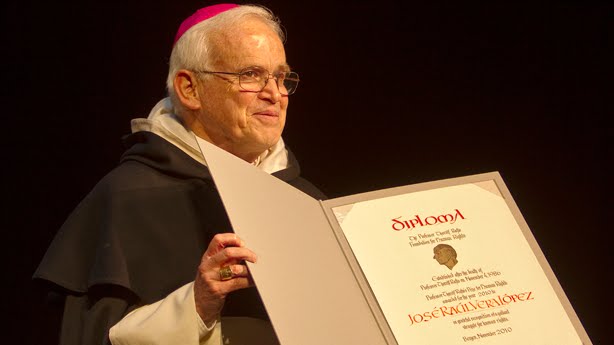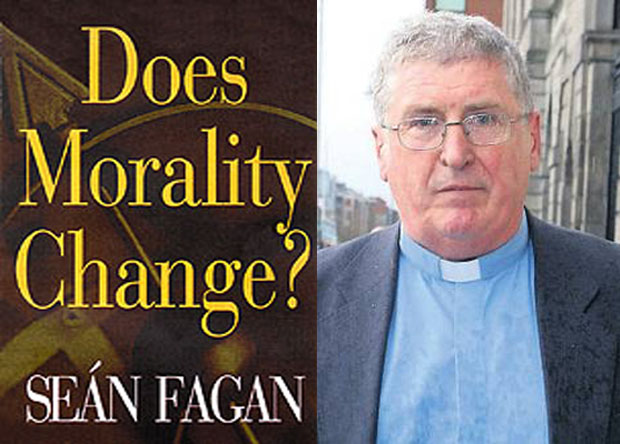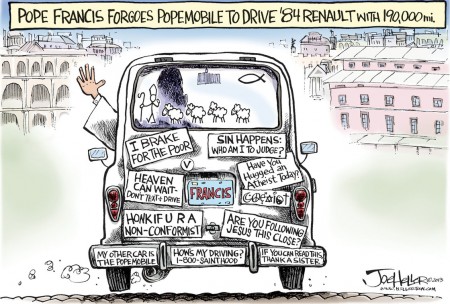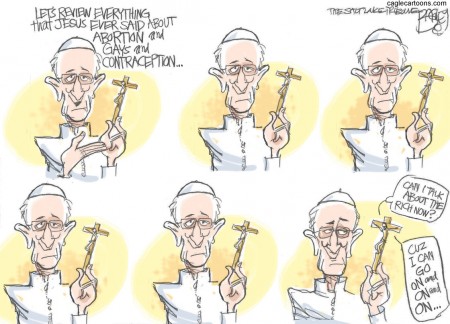By JAN MARTÍNEZ AHRENS
Raúl Vera is the Mexican bishop who holds the record for death threats. He has survived more than one attempt on his life, and his work in favor of missing persons, immigrants, children and juveniles, indigenous populations, prostitutes and pariahs of all types has earned him the undying hatred of many, including the drug rings.
Yet the threats seem to leave no mark on him. An engineer by trade and an intellectual son of May 1968, the 69-year-old Dominican friar has forged himself a legend as an untamed soul.
His first test came in 1995 when Juan Pablo II sent him to Chiapas in the middle of the Zapatista effervescence. His mission: to bring order to the diocese of San Cristóbal de las Casas, which was then headed by the charismatic Samuel Ruiz, a champion of liberation theology and supporter of pro-indigenous theories. But the man who was supposed to wrest power away from the unruly Ruiz and return the diocese to the path of conservatism ended up supporting the local clergy instead.
Rome never forgot. As punishment, four years later Vera was transferred to Saltillo, in the arid northern state of Coahuila. It was to no avail. Vera returned to the trenches, facing up to the government and to the fearsome drug cartel of Los Zetas.
Meanwhile, his charged rhetoric against inequality and “liberal capitalism” has distanced him from the rest of Mexico’s bishops, who are aristocratic and wed to orthodoxy.
For a long time, Raúl Vera was the Catholic Church’s black sheep, the old-fashioned left-winger. But that was until the ideological earthquake represented by the new pope, Francis I, gave renewed relevance to his words. Now, other bishops are suddenly turning to Vera for guidance.
Question. What visits would you recommend to the Pope when he comes to Mexico?
Answer. To begin with, he should become familiar with the migrants’ route. I would also make him visit a prison, because he likes going to prisons. I would also take him to the outskirts of a large city, because he says we should go to the periphery. I would organize a visit on the basis of what he is asking us to do. And I would make sure that the poor and the indigenous were standing in the front row, because that is something that doesn’t usually get done.
Q. Not long ago you baptized the daughter of a lesbian couple. What do you think about homosexuality?
The true meaning of life lies in the community, in caring for the weak”
A. That is a topic that we have refused to address. The people who say homosexuals are sick are sick themselves. The Church needs to come to them not with condemnation, but with dialogue. We cannot cancel out a person’s richness just because of his or her sexual preference. That is sick, that is heartless, that is lacking common sense.
Q. Is it not the same with abortion?
A. I share the Church’s views on abortion, and see it as murder. The difference lies in how you penalize it. Abortion, just like same-sex marriage, has served us subterfuge to tell ourselves that we in the Church have our morals. It is very easy to go against a woman who has an abortion, it poses no trouble and we have support from the ultraconservative right. When there was a national campaign against abortion here, I organized rosary recitations to reflect on the defense of the lives of migrants, miners and women as well as the unborn. But we are hypocrites. It would seem that the only moral rules deal with condemning same-sex couples and abortions. You do that and you’re the perfect Christian.
Q. Would you make prostitution legal?
A. No, that would be legalizing female exploitation. I believe in the dignity of women. Prostitutes are extremely damaged women, but they must never lose their dignity and their right to be respected. We are reaching horrible extremes in connection with trafficking and exploitation.
Q. You have confronted the drug cartels in public. Do you fear for your life?
I learned that in order to defend human life, you have to put your own life on the line”
A. In Chiapas I learned that you have to risk your life if you want to stand on the side of the poor. I learned that in order to defend human life, you have to put your own life on the line. There is no other way to be a shepherd.
Q. Mexico officially has more than 13,000 missing persons. In two northern villages, the drug rings took away 300 people in full daylight within the space of days, and authorities did nothing about it. What is happening?
A. Impunity is allowing this to happen. Disappearances come with the elimination of all evidence that might aid persecution of the crimes. First the people disappear, then their bodies.
Q. Would legalizing drugs be a solution?
A. That will not be a solution.
Q. Why not?
A. Absolutely not. Drugs go hand in hand with the depreciation of human life. The decomposition of man does not come from drugs; man turns to drugs, like he turns to alcohol, for other reasons. To some, life has no meaning and they need drugs to find that meaning. Others have no other place to go. Legalizing drugs will not solve the problem of why people use drugs in the first place.
Q. Are you a Socialist?
A. I do not consider myself a Socialist. I have not read Marx, I was not an activist, and I never liked the theory of conversion into a dictatorship. We all have the same rights and the same dignity, but we also have freedom. Yet I have never supported the methods of capitalism. The true meaning of life lies in the community, in caring for the weak and sharing equally in the bounty of the land. All of this I learned from the indigenous world, from the poor and the peasants. They taught me the value of human life and shared their capacity to feel joy. They taught me how to laugh.
Complete Article HERE!






